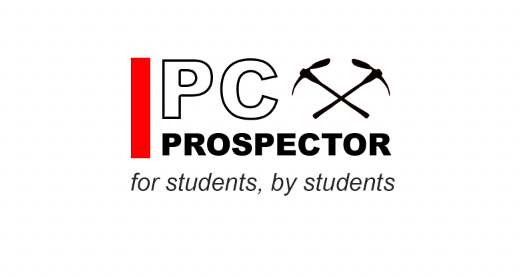PCHS Administration and Teachers React to Hate Speech Vandalism
Park City High School administration and teachers are moving forward after the hate speech incidents over the past month. They are investigating many different ways to generate progress, including task forces, anonymous reporting apps, and anti-hate programs.
PCHS history teacher Josh Golberg found a swastika and what appeared to be a racial slur written on the underside of a table in his classroom on Thursday, February 10. He reported it to the school administration the next day, who immediately had the vandalism removed.
In an email to parents and students the following week, Arbabi said that swastikas and other incidents of hate speech had appeared around campus.
After discovering the swastika in Goldberg’s room, the school also found several swastikas written on dusty cars in the parking lot.
“We are not going to tolerate hate speech on our campus from anybody,” said Arbabi. “I do not want students to feel uncomfortable about coming to my campus. So we want to make sure that we have a clear understanding of what hate speech is and we want to make sure that everybody recognizes it.”
Goldberg said that many victims of hate speech, both students and teachers, shared their stories with him after he spoke out. These victims come not only from PCHS, but also from schools like Treasure Mountain Junior High, Ecker Hill Middle School, and elementary schools in the district. He has been documenting these cases as more evidence to generate change.
“A lot of the victims don’t have the tools to deal with this because they’re kids, and they don’t know how to respond,” said Goldberg. “Once [the story of the vandalism] got out, it brought up all kinds of trauma from all over the place. And I think there’s been a lot of hurt in this community and that’s just coming to the surface right now.”
Goldberg discovered the vandalism after students alerted him during a brief break in the lesson during first period.
“I’m a Jewish guy, so antisemitism is a part of my life and has been for a long time, but I was shocked. Never would I have thought that the sacred work I do here would have been so attacked in so blatant a way,” said Goldberg, who added that most of his family was murdered in the Holocaust.
“As I processed it, I realized it was much more than just an attack on me personally, on Jews; [it was] an attack on everybody. It was an attack on all minorities, on peace-loving Americans, on Utahns. To use a symbol of hate and death like that was an attack on our entire community,” said Goldberg.
The school administration and the district are both working to eliminate the prevalence of hate speech at the high school, although they are in the early stages of developing new programs.
The school administration is trying to encourage an easy anonymous reporting system for hate speech victims to report their experiences.
“We’re looking at using SafeUT as a reporting system because then we can all react to that and we have one spot where everything is reported so that we can then track to make sure that we are stomping out hate speech,” said Arbabi.
The school is also working to organize task forces to deal with the hate speech at the high school. A task force composed of PCHS faculty and other adults met before February Break to brainstorm ideas for progress, and a student task force met earlier this week.

“We [need] to have adult task forces, adult leadership at every school site that is ready to identify trends and tackle those trends,” said Goldberg. “Also I want to see a student task force that incorporates student leaders from all over … that arrive at their own conclusions of what strategies we need to switch the culture. It can’t just be adults telling kids what to do.”
The district is also investigating comprehensive programs for faculty and staff to help them recognize hate speech and answer questions that arise from these difficult topics.
“We are still developing [those programs]. We are very fortunate that on our campus we have some very passionate teachers that are really taking this on … and they’re going to be helping us develop this training,” said Arbabi.
Goldberg is in favor of anti-hate training and would like to integrate anti-hate into the curriculum for many classes to change the school culture and create a safe environment for minorities. He would also like to develop a new anonymous reporting system that more students will use.
“[Anti-bias training] needs to be integrated into student learning, in the content areas. Each teacher needs to create a welcoming environment and embed this type of stuff in their classes,” said Goldberg.
Goldberg would also like the district to write an official diversity statement and appoint a director of diversity and inclusion.
In addition, Goldberg is advocating for a healing event at the high school to address the incidents (such as a school-wide video or some form of restorative justice) and clear consequences and investigations for perpetrators.
By raising awareness of these issues, Goldberg is hoping to pressure leaders at the district and state levels to enact real changes.
The Utah House of Representatives unanimously passed a resolution condemning antisemitism on Wednesday, February 23. The resolution came in the wake of several Utah antisemitism incidents, not merely those at PCHS.
These recent incidents include the statewide prevalence of swastika imagery, antisemitic imagery/language interrupting a Univerisity of Utah Zoom class, and antisemitic emails from a Utah technology company co-founder.
Despite his experiences, Goldberg believes that some good can come of this event and that the school and community can change for the better.
“[This event] has forced a very painful conversation and a reckoning in this school district and in this city that I really hope will be a much broader reckoning … [I hope] that this event, however hateful and terrible it is, will be a catalyst for a wider change,” said Goldberg.
“It’s our chance now … We can fix this. Not all of it, but we can fix a lot of it through kindness, through caring, through empathy, through understanding, tolerance,” said Goldberg.






